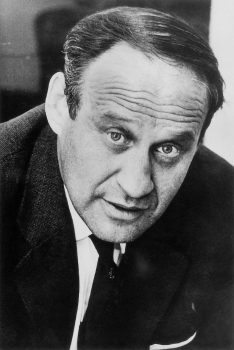Author: Juhani Niemi
Paradise lost
Issue 1/2007 | Archives online, Authors, Reviews
The working-class writer Toivo Pekkanen (1902–1957) broke sharply from the idealism of his contemporaries. In the short story Kaukainen saari (‘The faraway island’, 1945) he gives poetic voice to the sense of disillusion that the traumatic events of the first half of the 20th century engendered in him. Introduction by Juhani Niemi
An ever-shining, sun-blushed island on the horizon draws two brothers instinctively toward it; it offers a projection of their fantasies and an embodiment of their ideals. They must go there, but they don’t have their parents’ permission to use the rowing boat. Finally winter and a frozen sea make the journey to this version of earthly paradise possible.
Toivo Pekkanen’s story ‘The faraway island’ (from the collection Elämän ja kuoleman pidot, ‘The feast of life and death’, 1945) is the story of two schoolboys and the distant landscape that is the object of their infatuation. From its layered symbolism it is possible to draw connections with the writer’s own life as well as the condition of Finnish society in the 1940s. After the war, amid the pressure of changing political realities and movements for literary reform, Pekkanen followed his own personal path. His break-through novel was the autobiographical working-class novel Tehtaan varjossa (‘In the shadow of the factory’, 1932), but the traditional image of the people, the workers, which he began with in the 1920s didn’t satisfy him for long; in his later works there is a kinship with European modernists such as Franz Kafka and Albert Camus. More…
Juhani Niemi on Väinö Linna
Issue 4/1980 | Archives online, Authors

Väinö Linna. Photo: WSOY
Väinö Linna fits squarely into one of the dominant patterns of twentieth century literary development in Scandinavia. Like many writers of the period, Linna came from a working class background and struggled to free himself from that environment through self-education. He had no special interest in politics but his natural leanings were moderately left-wing. He isn’t a ‘political’ writer as such, and it would be simplistic to apply labels to his views. His central interests, which directly affect his style, are a concentration on firstly, acute social observation and, secondly, social analysis. Through novels in this genre – and Linna is without doubt a master – the reader finds a world and all its influences, from the personal to the historical and economic dissected, the casings laid back, the true juxtapositions revealed.
The process can be powerful and effective and Linna’s major works Tuntematon Sotilas (‘The Unknown Soldier’, 1954, English translation 1957) and the trilogy Täällä Pohjantähden alla (‘Here beneath the North Star’, 1960-62) have struck deep into the Finnish national consciousness radically influencing the way events in recent Finnish history have been viewed by a wide audience of readers. Both works have been enormously popular: the characters have so accurately caught the Finnish personality that they have become part of the nation’s mythology. More…
-
About the author
Juhani Niemi (born 1947) is a literary scholar, critic and author. He lives in Hämeenlinna.
© Writers and translators. Anyone wishing to make use of material published on this website should apply to the Editors.
